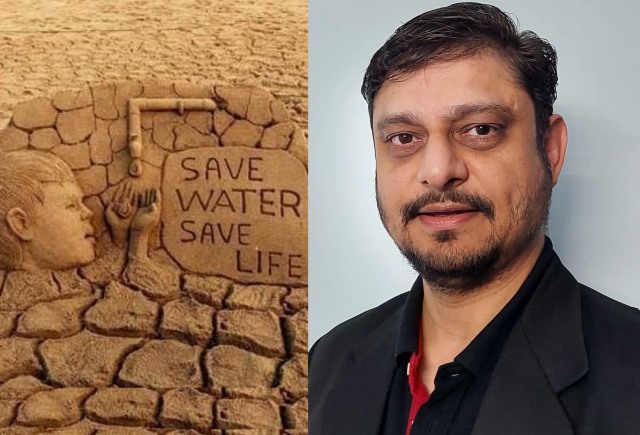Manish Saxena, who heads the resident body of high-rise township Arihant Ambience, warns about the depleting groundwater table and its ecological consequences
I seek to address a critical issue that has profoundly impacted our high-rise community: the severe water shortage caused by the lack of piped water supply and the resulting over-reliance on groundwater. This problem has led to an alarming depletion of groundwater over the past decade, a situation starkly highlighted by recent data from the National Compilation on Dynamic Ground Water Resources of India, 2023.
The Central Ground Water Board’s report reveals that Ghaziabad extracted 123% of its total groundwater last year. This rate of extraction is higher than the 75 other districts in the state, underscoring the severity of our situation. Our dependency on groundwater is unsustainable and has led to dire consequences for our community and environment.
In the high-rise residential areas of Greater Noida West, renowned housing societies are already facing acute water shortages. It is not uncommon to see residents queuing up to collect water from tankers, a sight that is both disheartening and indicative of a deeper crisis. These tanker services, while temporarily alleviating the immediate water needs, are not a viable long-term solution and add to the financial burden on our residents.
The excessive groundwater extraction has resulted in a significant drop in the water table, making it increasingly difficult and expensive to access water. Borewells, once sufficient at 100 feet, now require drilling to depths of over 500 feet. This not only escalates costs but also raises the risk of accessing contaminated water, which can have serious health implications.
ALSO READ: ‘We Have Turned A Blind Eye To Looming Water Crisis’
In addition, the environmental impact of this groundwater depletion is worrisome. The over-extraction disrupts natural hydrological cycles, adversely affecting nearby rivers, lakes, and wetlands. This ecological imbalance harms local biodiversity and diminishes the natural beauty and health of our environment.
Socially, the water scarcity has strained our community. Disputes over water allocation have become frequent, and the stress of uncertain water supply affects the quality of life and community harmony. Our children grow up in an environment where water conservation is not just a lesson but a necessity, overshadowing their formative years with concerns about basic resources.
To address this crisis, we have implemented several initiatives. Water-saving measures, such as installing low-flow fixtures, promoting rainwater harvesting, and recycling greywater, are in place. However, these measures alone are insufficient to resolve the root issue: the lack of a reliable piped water supply.
We have consistently engaged with municipal authorities, urging them to restore and improve the piped water infrastructure. Despite receiving assurances, concrete actions are still lacking. It is imperative that the government recognizes the gravity of this issue and invests in sustainable water management solutions, including repairing and expanding the existing water supply network and enforcing regulations to prevent illegal water extraction.
Fostering a culture of water conservation within our community is crucial. Educational campaigns, workshops, and incentives for water-saving behaviors can significantly change mindsets and habits. Collaboration with neighboring communities is also vital to advocate for regional solutions, understanding that water management is a collective responsibility.
In conclusion, the water crisis in our high-rise community is a pressing issue that demands immediate and concerted action. By working together, both within our community and with external stakeholders, we can address the challenges of groundwater depletion and ensure a sustainable water future for ourselves and future generations.
As told to Deepti Sharma

